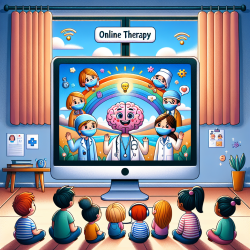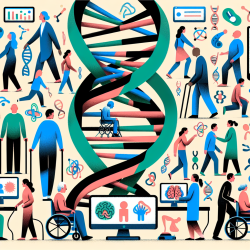In the ever-evolving field of neurodevelopmental research, the discovery of genetic influences on brain development has opened new avenues for therapeutic interventions. One such breakthrough is the study of the NUP85 gene, which has been identified as a critical player in both nephrotic syndrome and neurological development. This blog delves into the implications of this research for practitioners seeking to enhance their therapeutic skills and encourages further exploration into this promising area.
Understanding NUP85: From Podocyte to Neuron
The NUP85 gene encodes a nucleoporin, a component of the nuclear pore complex (NPC), which plays a vital role in cellular processes such as nucleocytoplasmic transport and genome integrity maintenance. Recent studies have highlighted its involvement in severe neurological phenotypes, including microcephaly, developmental delay, and epilepsy. These findings suggest that NUP85 is not only crucial for kidney function but also for brain development.
Implications for Therapeutic Practices
For practitioners working with children who have neurodevelopmental disorders, understanding the genetic underpinnings can significantly impact therapeutic approaches. Here are some ways in which the insights from NUP85 research can be applied:
- Targeted Interventions: By identifying specific genetic variants associated with neurological impairments, therapists can tailor interventions that address the unique needs of each child.
- Early Diagnosis: Genetic testing for mutations in genes like NUP85 can facilitate early diagnosis and intervention, potentially improving outcomes for affected individuals.
- Collaborative Care: Understanding the dual impact of NUP85 on both renal and neurological health underscores the importance of interdisciplinary collaboration between nephrologists, neurologists, and therapists.
The Call for Further Research
The study of NUP85 is still in its early stages, with much to learn about its full range of effects on neurodevelopment. Practitioners are encouraged to participate in ongoing research efforts and contribute to expanding our understanding of this gene's role. Engaging with genetic research can enhance clinical practice by integrating cutting-edge scientific insights into everyday therapeutic strategies.
For those interested in delving deeper into this topic, I highly recommend reading the original research paper titled NUP85 as a Neurodevelopmental Gene: From Podocyte to Neuron.
By embracing the potential of genetic research like that on NUP85, we open doors to innovative therapies that can transform lives. As we continue to explore these genetic pathways, we empower ourselves as practitioners to provide more effective care and support for those we serve.










